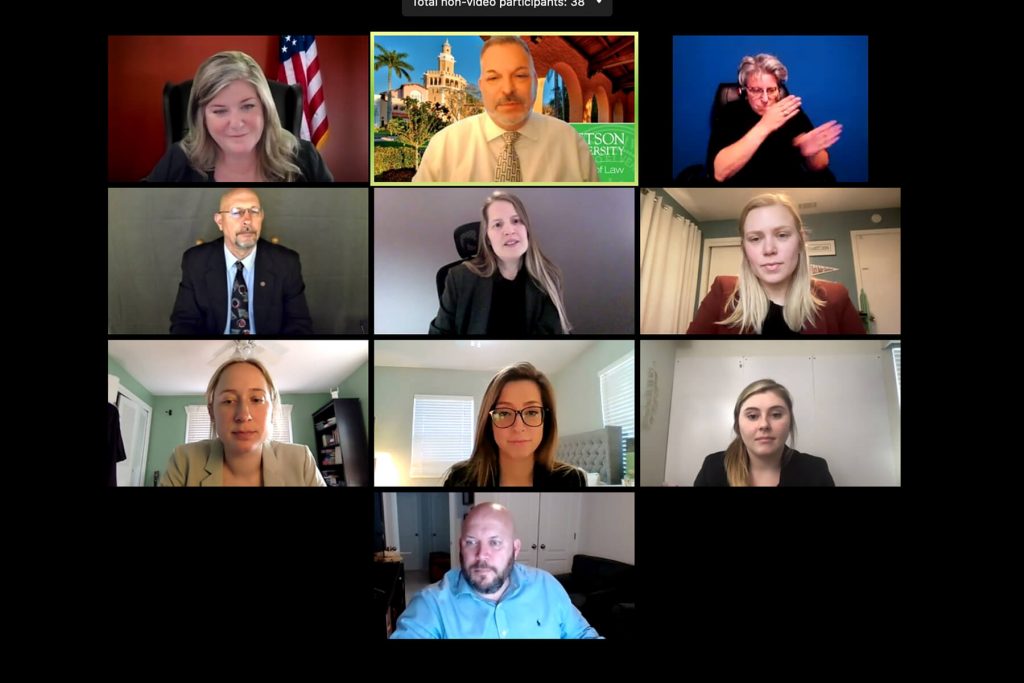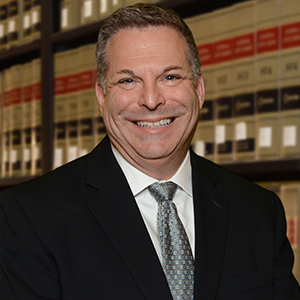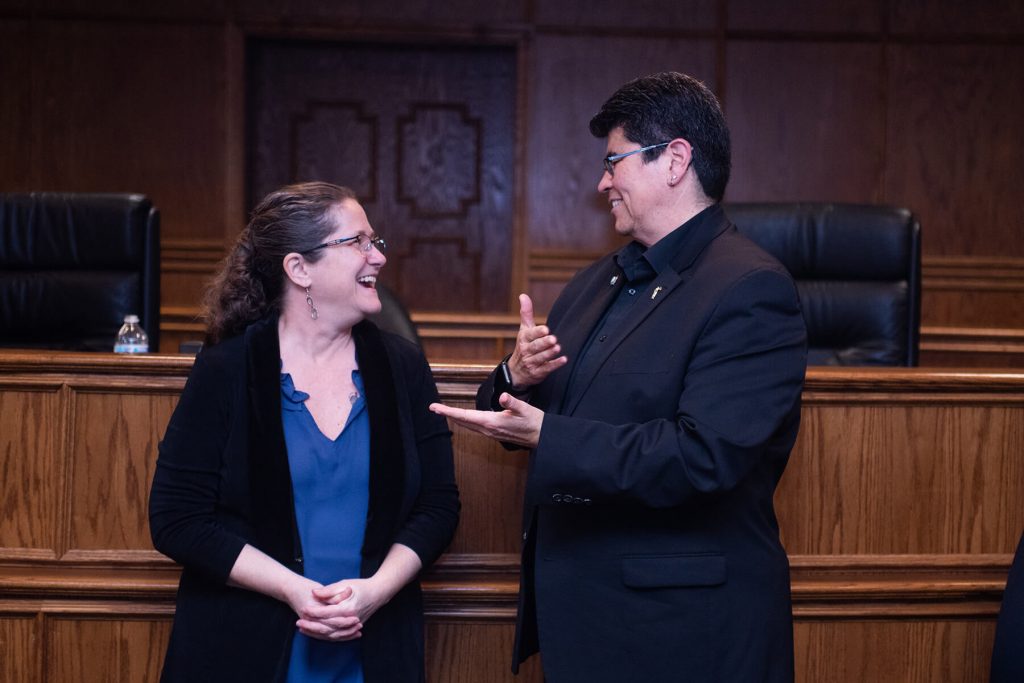Stetson Law takes unique sign language interpreter training virtual

GULFPORT, Fla. – For the fourth year in a row, Stetson Law hosted an innovative workshop to train both sign language interpreters and future lawyers in navigating a courtroom and legal proceedings when sign language interpretation is required.
The 4th Annual Sign Language Interpreter Legal Training Workshop is unlike any other in the country because it provides specialized, hands-on sign language interpreter legal training in a live mock hearing courtroom setting. The workshop tackles some of the challenges distinctive to courtroom sign language interpreting, such as navigating the courtroom environment, and conveying abstract concepts and technical legal terms.
“Stetson is the only place that is providing training for sign language interpreters in true-to-life hearings and trials with real lawyers and law students,” said Professor Jason Palmer, one of the organizers. “It is a unique opportunity for our students to get that experience before they go out and practice, and for sign language interpreters to have a real courtroom experience instead of training in a meeting room or a convention center.”
The two-day workshop featured Stetson Law faculty and staff from its Center for Excellence in Advocacy and the Center for Excellence in Elder Law, students from Stetson Law’s Trial Team, Dispute Resolution Board, and Moot Court Board, along with professionals from two American Sign Language (ASL) interpreter services: Tampa-based Absolute Quality Interpreting Services, and Columbus, Ohio-based Hallenross and Associates. More than 50 novice and advanced level interpreters from all over the United States attended the event.
“This has absolutely matured into something amazing,” said David Scott, chief operational officer with Absolute Quality Interpreting Services, which has partnered with Stetson all four years. “The staff at Stetson has turned it into an absolute magical training.”
The first day of the workshop provided lectures and training on standard practices and vocabulary for courtroom interpreting. On the second day, all the participants had the chance to test out their skills in a courtroom environment with the help of Stetson Law’s Advocacy Board Students. Interpreters worked through every step of a hearing, including interpreting open and closing statements, direct and cross-examinations, and interpreting for a witness who is deaf.
American Sign Language is its own unique language, rather than a direct interpretation of English, and that is an important distinction for lawyers to understand. Lawyers are taught to be deliberate in their word choices in questions and opening and closing statements, so understanding how part of a court proceeding will be interpreted in ASL could require them to adjust their approach. For example, using sarcasm in a closing statement could backfire if it cannot be adequately conveyed to a deaf juror. Likewise, interpreters must be highly cautious about their facial expressions and word choice in the legal world. Something as small as interpreting the word “gun” when an attorney actually said “weapon,” could alter what the attorney meant to convey. And questions of accuracy of the record could lead to serious repercussions, such an appeal of a decision or even a malpractice lawsuit.
Traditionally held on Stetson Law’s Gulfport campus, which offers fully equipped and accessible courtrooms, this year the workshop went virtual via Zoom. The online platform presented new challenges for all involved. For example, some students found their rhythm during questioning disrupted as they had to allow for the delay in questions and answers to be interpreted. Everyone, including interpreters and deaf witnesses, agreed it was not always clear which interpreter they should be watching when more than one was on screen signing. However, the prevailing sentiment in the legal community is that much of the industry’s work – be it court hearings or client meetings – will continue to be done remotely even after the pandemic ends. So, it behooves lawyers and interpreters alike to be comfortable with navigating this new normal.
“I’m thankful this crucial work is happening to make our courtrooms more inclusive,” said Dean Michèle Alexandre. “It’s a great opportunity for our students to learn skills to advocate for clients of different backgrounds who need interpretation.”
Post date: March 31, 2021
Media contact: Kate Bradshaw
[email protected] | 727-430-1580

